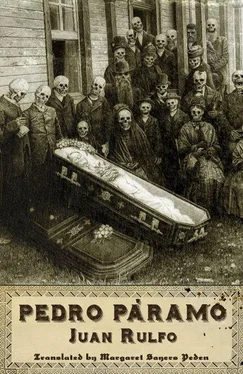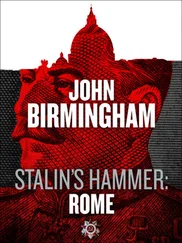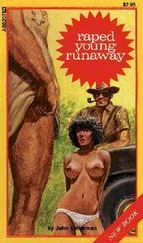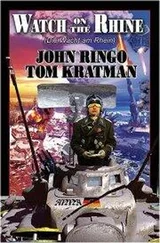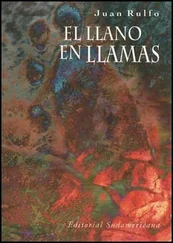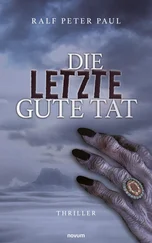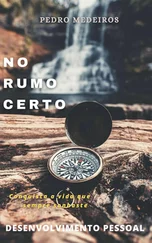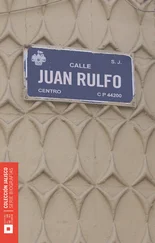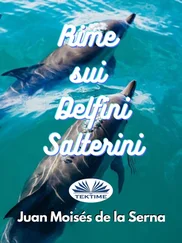And continued: “You’ve been gone a long time, Susana. The light is the same now as it was then; not as red, but that same pale light veiled in the white gauze of the mist. Like now. And it was just this hour. I was sitting here by the door, watching it dawn, watching as you went away following the path to Heaven; there, where the sky was beginning to glow with light, leaving me, growing fainter and fainter among the shadows of this earth.
“That was the last time I saw you. As you went by, you brushed the branches of the Paradise tree beside the path, sweeping away its last leaves with your passing. Then you disappeared. I called after you, ‘Come back, Susana!’”
Pedro Paramo’s lips kept moving, whispering words. Then as he pressed his lips together, he opened his eyes, where the pale light of dawn was reflected. Day was beginning.
At that same hour, dona Ines, the mother of Gamaliel Villalpando, sweeping the street in front of her son’s stope, saw Abundio Martinez push the half-open door and go inside.
He saw Gamaliel asleep on the counter, his sombrero over his face as protection against the flies. Abundio waited a while for him to wake up. He waited until dona Ines, who had completed her chore of sweeping the street, came in and poked her son’s ribs with the broomstick:
“You have a customer here! Get up!”
Gamaliel sat up, surly and grunting. His eyes were bloodshot from being up so late, and from waiting on drunks — in fact, getting drunk with them. Now, sitting on the counter, he cursed his mother, he cursed himself, and uninterruptedly cursed life, “which isn’t worth shit.” Then he lay back down with his hands stuffed between his legs, and fell asleep still mumbling curses:
“It’s not my fault if drunks are still dragging their asses around at this hour.”
“My poor boy. Forgive him, Abundio. The poor man spent the night waiting on some travelers; the more they drank the more quarrelsome they got. What brings you here so early in the morning?”
She was shouting as she spoke, because Abundio was so hard of hearing.
“Well, I need a bottle of liquor.”
“Has Refugio fainted again?”
“No, she died on me, madre Villa. Just last night, about eleven. After I went and sold my burros. I even sold my burros, so I could get help to make her better.”
“I can’t hear what you’re saying. What did you say? What are you telling me?”
“I said I spent the night sitting up with my dead wife, Refugio. She gave up the ghost last night.”
“I knew I smelled a death. That’s what I said to Gamaliel: ‘I have a feeling that someone’s died. I can smell it.’ But he didn’t pay me any mind. Trying to get along with those strangers, the poor man got drunk. You know how he is when he’s like that; he thinks everything’s funny, and doesn’t pay any attention. But, let’s see now. Have you invited anyone to the wake?”
“No one, madre Villa. That’s why I need the liquor, to ease my sorrow.”
“Do you want it straight?”
“Yes, madre Villa. To get drunk faster. And give it to me quick. I need it right now.”
“I’ll give you two pints for the price of one, because it’s you. I want you to tell your poor dead wife that I always thought well of her, and for her to remember me when she gets to the pearly gates.”
“I will, madre Villa.”
“You tell her that before she gets cold.”
“I’ll tell her. I know she’s counting on you to pray for her. She died grieving because there wasn’t anyone to give her the last rites.”
“What! Didn’t you go for padre Renteria?”
“I did. But they told me he was in the hills.”
“What hills?”
“Well, off there somewhere. You know there’s a revolution.”
“You mean he’s in it, too? God have mercy on our souls, Abundio.”
“What do we care about all that, madre Villa? It doesn’t touch us. Pour me another. Sort of on the sly, like. After all, Gamaliel’s asleep.”
“Then don’t you forget to ask Refugio to pray to God for me; I need all the help I can get.”
“Don’t worry. I’ll tell her the minute I get home. I’ll get her to promise. I’ll tell she has to do it or else you’ll be worrying your head about it.”
“That’s just what I want you to do. Because you know how women are. You have to see that they do what they promise.”
Abundio Martinez set another twenty centavos on the counter.
“Now I’ll take that other one, sefiora. And if your hand is a little liberal, well that’s up to you. The one thing I promise is that I’ll drink this one at home with the departed; there beside my Cuca.”
“Get along then, before my son wakes up. He’s pretty sour when he wakes up after a drunk. Get on home, and don’t forget my message to your wife.”
Abundio left the store sneezing. The liquor was pure fire, but since he’d been told that drinking it fast made you drunk faster, he gulped down swallow after swallow, fanning his mouth with his shirttail. He meant to go straight home, where Refugio was waiting, but he took a wrong turn and staggered up the street rather than down, following the road out of town.
“Damiana!” called Pedro Paramo. “Go see who that man is coming down the road.”
Abundio stumbled on, head hanging, at times crawling on all fours. He felt as if the earth were tilting, that it was spinning, and flinging him off. He would make a grab for it, but just when he had a good hold, it would start spinning again…. Until he found himself facing a man sitting outside his door.
“I need money to bury my wife,” he said. “Can you help me?”
Damiana Cisneros prayed: “Deliver us, O God, from the snares of the Devil.” And she thrust her hands toward Abundio, making the sign of the cross.
Abundio Martinez saw a frightened woman standing before him, making a cross; he shuddered. He was afraid that the Devil might have followed him there, and he looked back, expecting to see Satan in some terrible guise. When he saw nothing, he repeated: “I’ve come to ask for a little charity to help bury my wife.”
The sun was as high as his shoulder. A cool, early-morning sun, hazy in the blowing dust.
As if he were hiding from the sunlight, Pedro Paramo’s face vanished beneath the shawl covering his shoulders, as Damiana’s cries grew louder, cutting through the fields: “They’re murdering don Pedro!”
Abundio Martinez could hear a woman screaming. He didn’t know how to make her stop, and he couldn’t find the thread of his thoughts. He was sure that the old woman’s screams could be heard a long way away.
Even his wife must be hearing them, because they were piercing his eardrums, even though he couldn’t understand the words. He thought of his wife, laid out on her cot, all alone there in the patio of his house where he had carried her to lie in the cool air, hoping to slow the body from decomposing. His Cuca, who just yesterday had lain with him, live as life, frolicking like a filly, nipping and nuzzling him. The woman who had given him the son who had died almost as soon as he was born, because, they said, she was in such bad health: a sore eye, the ague, a bad stomach, and who knows what all, according to the doctor who’d come at the last minute, after he’d sold his burros to pay for the price of his visit. And none of it had done any good….His Cuca, lying there in the night dew, her eyes fast shut, unable to see the dawn, this sun… any sun.
“Help me!” he said. “I need a little money.”
But he couldn’t hear his own words. The woman’s screams deafened him.
Small black dots were moving along the road from Comala. Soon the dots turned into men, and then they were standing beside him. Damiana Cisneros had stopped screaming now. She had relaxed her cross. She had fallen to the ground, and her mouth was open as if she were yawning.
Читать дальше
